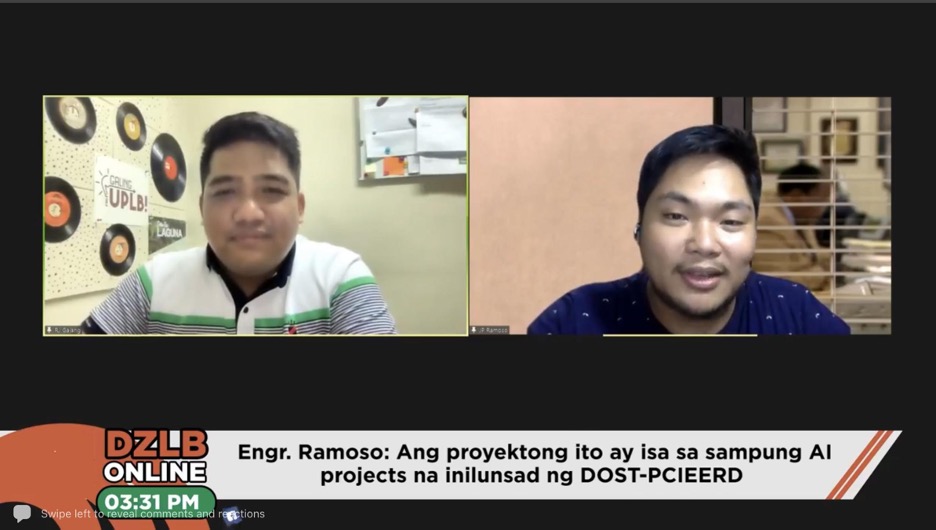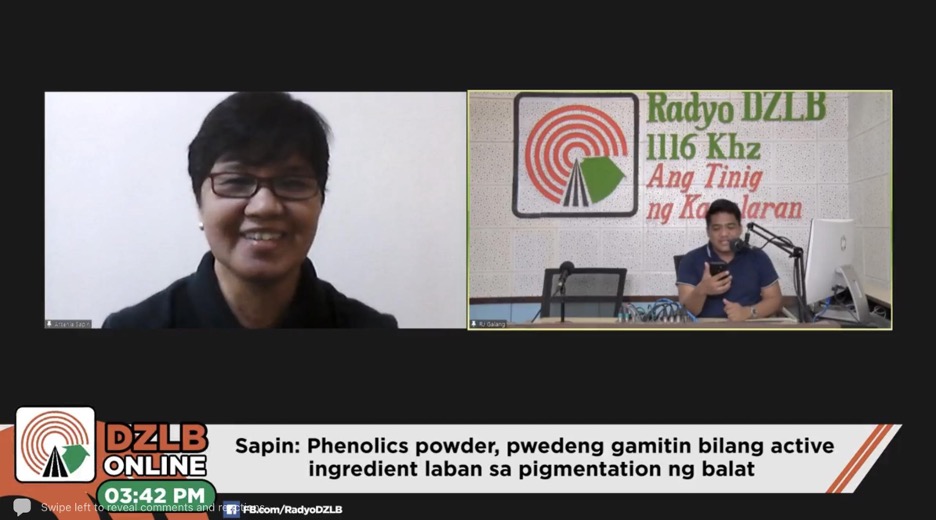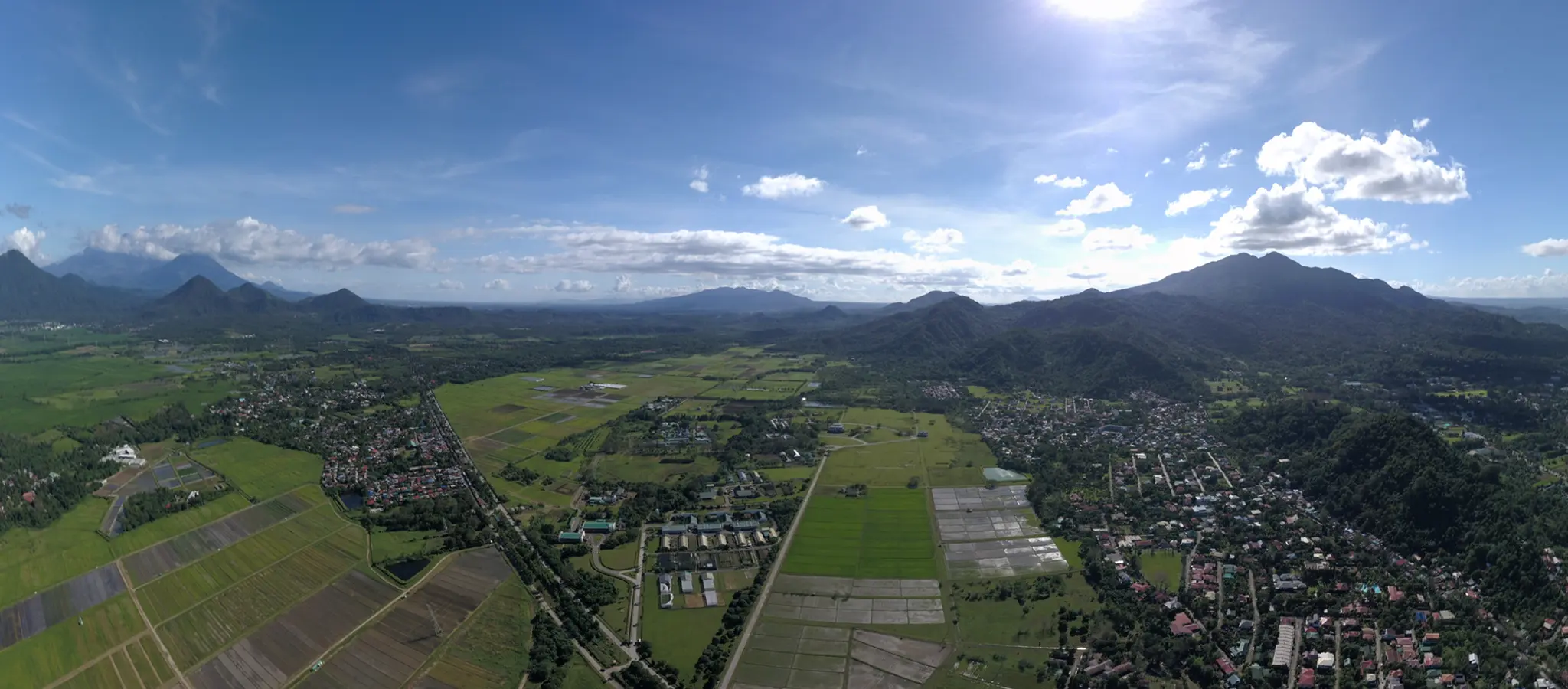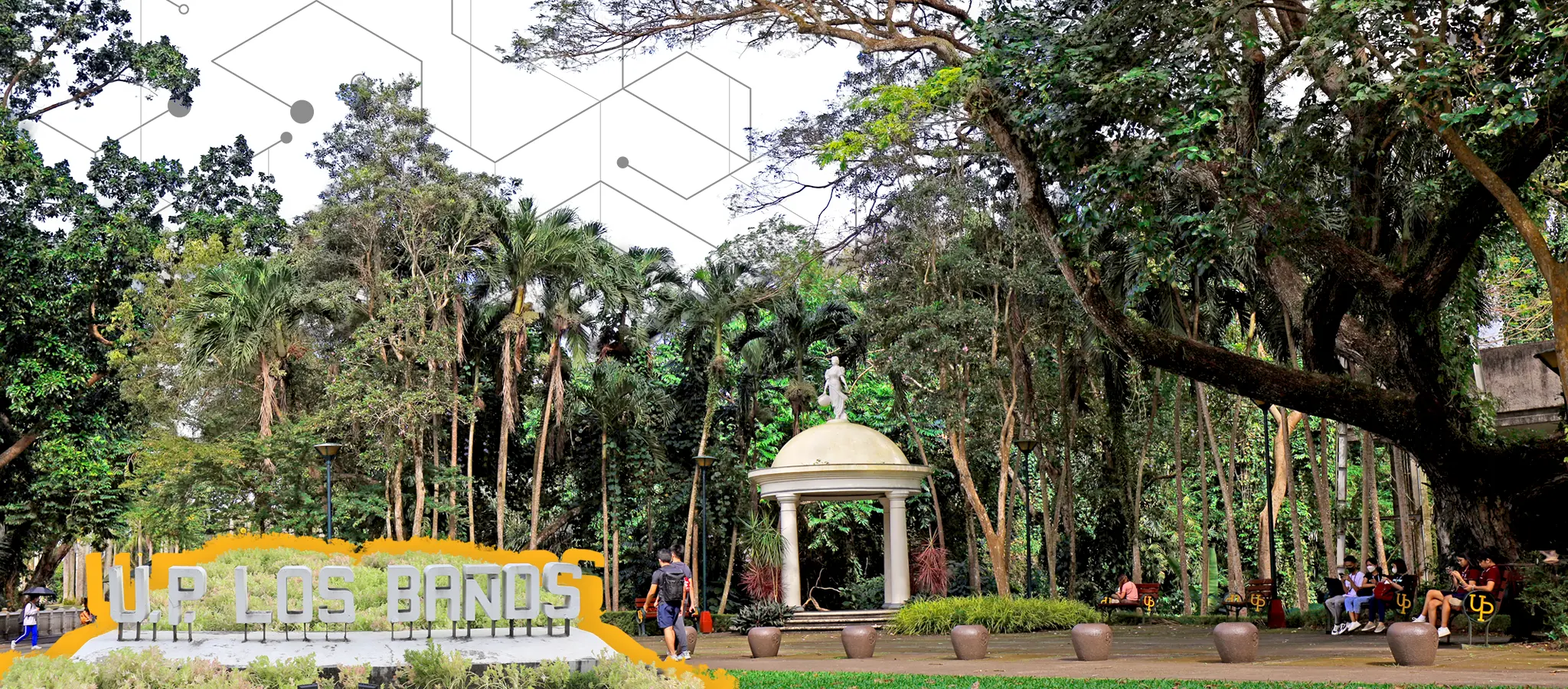
For the month of June, the guests featured in Usapang UPLB imparted stories about the ongoing projects on Spectroscopy for Public Use and the Development of Phenolics Mango Powder as a source of income for mango farmers.
Spectroscopy for easier and more accessibility

Engineers from UPLB are attempting to add machine learning to spectroscopy to make the process of technical analysis faster and more accessible.
Spectroscopy is basically about studying the ”fingerprint” or signature of materials, according to Engr. John Paolo A. Ramoso, a faculty member at the College of Engineering and Agro-industrial Technology and one of the project leaders.
Once their project is finished, spectroscopy may already be used to detect specific materials that would be useful in ensuring food safety and in drug detection. According to Engr. Ramoso, one example of the use of spectroscopy is in detecting the expiration or presence of microorganisms of an unopened canned food. He said that it could also be used as an x-ray, specifically targeting the frequency of appearance and amount of objects.
The project team developed programs to act as neural networks to mimic the function of the human brain, using the convolutional neural network (CNN) analyzing images, and the recurrent neural network (RNN) analyzing time-based datasets.
During his interview on Usapang UPLB, Engr. Ramos said, “layon ng proyekto na halauan ng machine learning ang spectroscopy para mas marami ang makagamit.”
(“The project aims to combine machine learning and spectroscopy so that more people can use it.”)
They are working on the development of a program or software using CNN and RNN that will then aid in accurately determining the frequency response of the objects analyzed.
This is a collaborative project of the Department of Electrical Engineering and Institution of Mathematical Sciences and Physics and is funded by the Department of Science and Technology-Philippine Council for Industry, Energy and Emerging Technology Research and Development (DOST-PCIEERD).
According to Engr. Ramoso, the project is one of only 9 that were ever approved in DOST-PCIEERD’s Artificial Intelligence program.
Aside from a budget allocated to them, the project also received from DOST-PCIEERD a High Powered Computing machine, or HPC that will further help in support of the spectroscopy analysis project.
The project is currently at its data gathering stage, though researchers already see its potential commercial applications.
Mango Phenolics Powder can be used for Cosmetic Products

In 2016, the mango production dropped, prompting farmers to look for ways to still be able to utilize other parts of mango trees.
To the rescue were researchers from the National Institute of Molecular Biology and Biotechnology who discovered that phenolics powder from mangoes can be used for cosmetic products.
University researcher Arsenia B. Sapin said that they were asked to do research on mangoes to focus on the use of other parts of the tree. The researchers discovered that mango leaves, flowers, bark, and even its damaged fruits contain high amounts of phenolics.
Phenolic compounds produced by plants contain biological activities that can have various applications. In their project, they were able to establish a process to extract phenolics from mango leaves and turn these into powder form.
Through their research, they discovered that the phenolics powder from mango leaves can be used as an active ingredient in cosmetic products to help in lessening skin pigmentation.
Usapang UPLB is a segment of Galing UPLB, a university-based multi-platform program which is produced by the Department of Development Broadcasting and Telecommunication of the College of Development Communication, the Office of Public Relations, and the Office of Alumni Relations. Recently, the Office of the Vice Chancellor for Research and Extension also joined the team, handling the segment, Tuklas UPLB.
Galing UPLB airs live every Friday at 3 PM on Facebook, featuring news, current events, and note-worthy events and stories. All its episodes are available on Radyo DZLB’s Facebook page.
Share this on:



